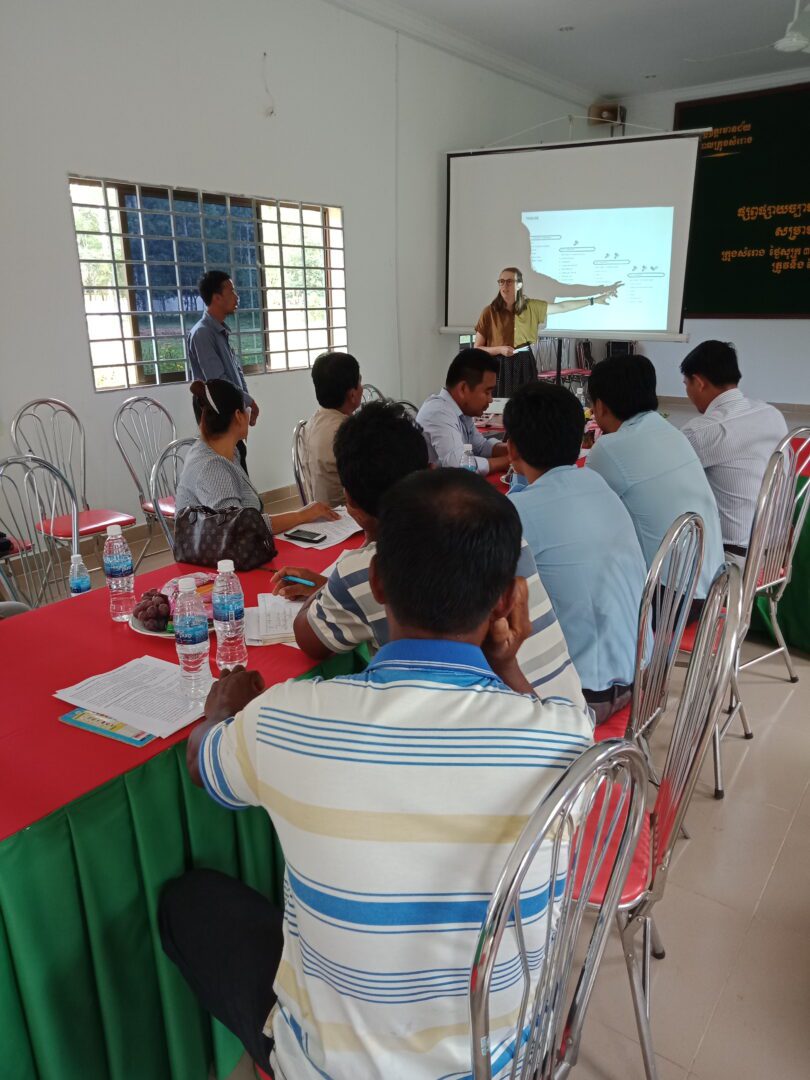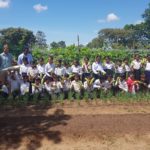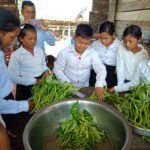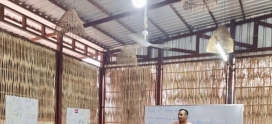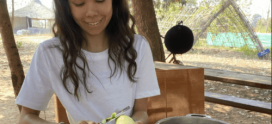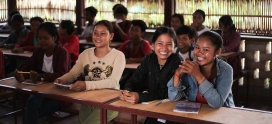FASE Agritech Volunteering- Week 3
Whilst it has been evident from the start of our time in Oddar Meanchey, during our third week in Samraong we were presented two opportunities to witness just how respected the work of Green Shoots & CIDO is in the local community (main photo)
The first was on Thursday morning at the District Hall, when we had the chance to engage with key local leaders about the plans for the Agri-Tech Centre. The purpose of the session was for Kate to present the building design and site plan, and for the CIDO team to seek feedback on the training approach and curriculum. In attendance was the Deputy Governor of the District, Village Chiefs and Government representatives from the Vocational Training, Agriculture and Education departments. It was our first time presenting with someone translating for us (thanks Ratana!) – which really made us think about adapting our language and speaking in a clear and concise manner.
Kate’s presentation was well received, with particular interest shown in the work done on trialling the earth blocks and treated bamboo. Not only will these materials be used in the construction of the Centre, but the resources and skills built in their exploration and prototyping will enable future use of these materials across the community. There was a positivity in the room about the role the Centre will play and a real willingness from these key leaders to support the Centre, be it with facilitators, providing access to a local stream or collaborating on training and assessment materials to provide accreditation to graduates.
On Friday morning we saw the fantastic Agriculture Skills in Public Schools (ASPUS) program in full swing. ASPUS is a program that focused
on bringing vegetable gardens and agricultural skills training to 42 primary, secondary and high schools across 2 districts. Teachers are trained by CIDO to deliver vocational training on sustainable agricultural practices to their class, which so far has reached over 8000+ students. We accompanied Sokphea to a primary school involved in this initiative, where the children had built a very impressive vegetable garden. It was brilliant to see them so engaged in the garden and taking ownership of the full cycle of tasks they had learnt; soil preparation and composting, planting, watering, weeding, monitoring the plants for insects, using organic pesticides when required, and harvesting.
The students were able to take home some sponge gourd for their families and we helped cook up some Morning Glory fresh from the garden for the entire school to enjoy for breakfast! For a look at our day at our day at the primary school – check out this video…
Over the weekend, we scooted down the road to Siem Riep to see Angkor Wat and the wonders of the Angkor Empire. Simply amazing sites. Outside of work, we’ve also been enjoying tasting some delicious traditional Khmer dishes – some of our favourites have been kuyteav (a pork broth-based rice noodle soup), banh chaev (crepe with ground pork) and banh kanh (flat noodles with beef and vegetables). Although the sponge cake with coconut cream filling to celebrate Sokphea’s birthday was the culinary highlight!
This week we completed the final round of field testing for the Earth Blocks which involved a wet compression test of the prototype blocks after submerging them in water for 30 hours. In a very pleasing result all three block compositions held their form after the soak test and two block compositions passed wet compression test at both 2Mpa and 4Mpa. Further samples are now with a laboratory in Phnom Penh, with final results expected to confirm the specific block to be used for the Centre.
Following on from last weeks blog, to see how the site is progressing here is a short video update…
Kate & Cory

